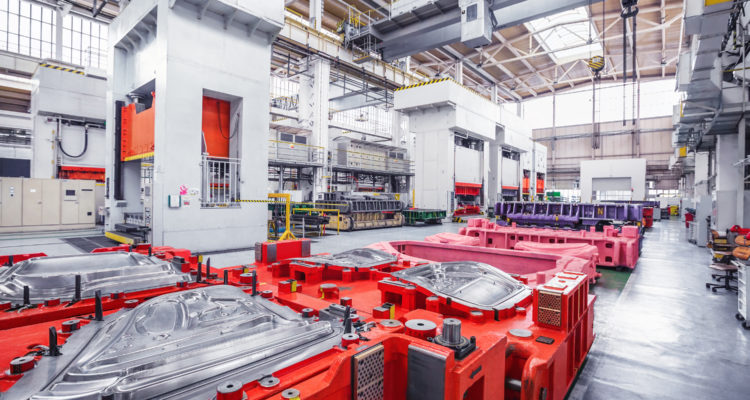Preforming, kit cutting and automated material preparation have a positive impact, especially on dry material composite production steps for infusion and resin transfer molding processes.
Tooling Considerations
Tooling design and production viability are also paramount to successfully rolling out new technologies. Engineers need to keep tooling within operating guidelines and regularly communicate with production personnel to ensure success.
Complex design that can be achieved by a computer rendering or prototype build may not be conducive to repeated preparation, production, demolding and care of composite tooling. Following a design guide and experience with ongoing production floor interaction is critical. Be sure that parts and process engineers have a plan for how the mold can be moved, stored, prepared and maintained effectively in its production environment. Adhering to these guidelines leads to repeated positive influences on production and maintenance cost estimate accuracies throughout the production of the composite part.
Company Culture
Company culture also must be accounted for in moving new technologies to production, including securing buy-in from employees and providing the necessary training and support for composites technicians on the plant floor to implement process improvements. Productivity or growth-based incentive programs help drive buy-in and accountability.
Prototype parts can often be made with a slow and deliberate process utilizing the most experienced production employees. Designers, managers and engineers are familiar and invested in the new product. If that same level of experience, motivation and resources is not translated to production, then repeated success is not ensured.
Many composite product development cycles are becoming increasingly fast. Be careful to avoid overreliance on past part production experience if new materials and design are being introduced. Have measurable quality controls in place to monitor the production process in real time. Matching design to the production capabilities and giving real-time manufacturing process feedback to employees is valuable.
To get the right products to market on time and on budget, manufacturers require both modern tools and trained employees to consistently interpret the manufacturability, efficiency, and cost of their designs. ACMA’s Certified Composites Technician (CCT) programs include knowledge areas that evaluate composites manufacturing applications of CAD technology, Industry 4.0 and production simulations. (For more information, visit acmaeducationhub.org/certification.
It is critical to train and enable personnel on relevant composite process technologies that are used in all phases of design, prototyping and production. Taking these factors into account at the start of design, through production can make new technologies successful. A combination of solid preparation, planning, design and engineering facilitates fast introduction of new composites products, which is increasingly critical for composites manufacturers’ success.


